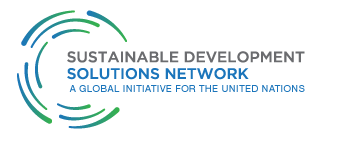The Sustainable Development Solutions Network (SDSN) has released 'Key Elements of a Successful Addis Ababa Accord on Financing for Sustainable Development,' a Working Paper prepared by the Leadership Council of the SDSN.
The paper argues that a successful Third International Conference on Financing for Development (FfD 3) should provide the means of implementation for the Sustainable Development Goals (SDGs) and the climate agreement to be reached at the Paris Climate Change Conference.
 19 March 2015: The Sustainable Development Solutions Network (SDSN) has released ‘Key Elements of a Successful Addis Ababa Accord on Financing for Sustainable Development,’ a Working Paper prepared by the Leadership Council of the SDSN. The paper argues that a successful Third International Conference on Financing for Development (FfD 3) should provide the means of implementation for the Sustainable Development Goals (SDGs) and the climate agreement to be reached at the Paris Climate Change Conference.
19 March 2015: The Sustainable Development Solutions Network (SDSN) has released ‘Key Elements of a Successful Addis Ababa Accord on Financing for Sustainable Development,’ a Working Paper prepared by the Leadership Council of the SDSN. The paper argues that a successful Third International Conference on Financing for Development (FfD 3) should provide the means of implementation for the Sustainable Development Goals (SDGs) and the climate agreement to be reached at the Paris Climate Change Conference.
The Working Paper identifies four objectives that the FfD 3 outcome should achieve: aligning the principles of FfD with the new SDG agenda with clear timelines for implementation; increasing the volume and quality of private and public financing, including Domestic Budget Revenues (DBR) and International Development Financing (IDF); committing to effective pooled financing mechanisms to support the SDGs; and ensuring that national and global rules for investment, finance, trade, and other “non-financial” means of implementation (MOI) are consistent with the SDGs.
The document contains chapters on: aligning finance with sustainable development; partnerships; mobilizing new IDF for the SDGs; reforming international governance; mobilizing non-financial MOI; and accountability.
Its principal recommendations include: adopt clear standards for DBR; all high-income countries should commit 0.7% of gross national income (GNI) in official development assistance (ODA) and disburse at least 0.15-0.20% of GNI to LDCs; all IDF should be subject to transparent reporting through a Multilateral Development Finance Committee; commit to providing at least US$100 billion per year in climate finance from developed countries by 2020, mobilized as 1/3 ODA for climate (ODA-C); ODA-C should be integrated with development financing, but is additional and not included in the 0.7% ODA target; and reform global financial regulations to end tax and secrecy havens.
The Working Paper builds on the 2002 Monterrey Consensus, the 2008 Doha Declaration on FfD, and the preparations for the post-2015 development agenda, including the outcome document of the Open Working Group on the SDGs and the 2014 Synthesis Report of the UN Secretary-General. The document also draws on recent reports on FfD, including the Elements Paper from the co-facilitators of the FfD negotiations, and reports by the Intergovernmental Committee of Experts on Sustainable Development Financing (ICESDF), the World Bank, and the UN Secretary-General’s High-level Advisory Group on Climate Change Financing, among others. [Publication: Key Elements of a Successful Addis Ababa Accord on Financing for Sustainable Development]